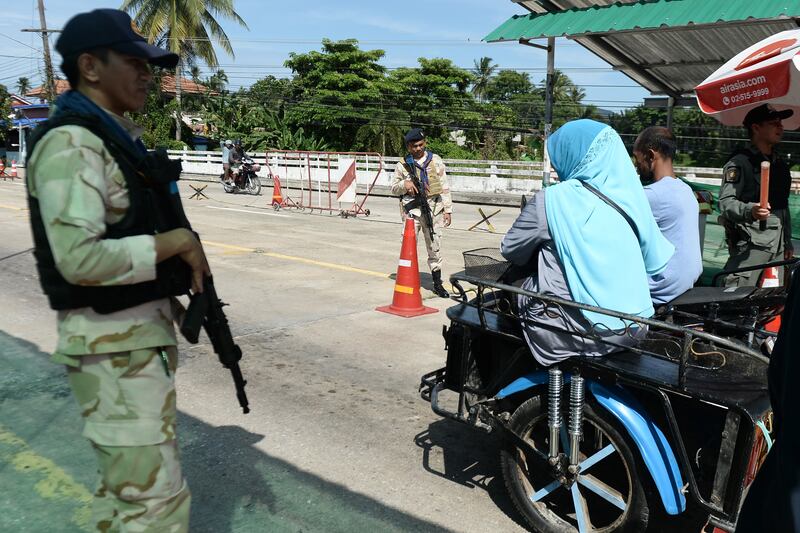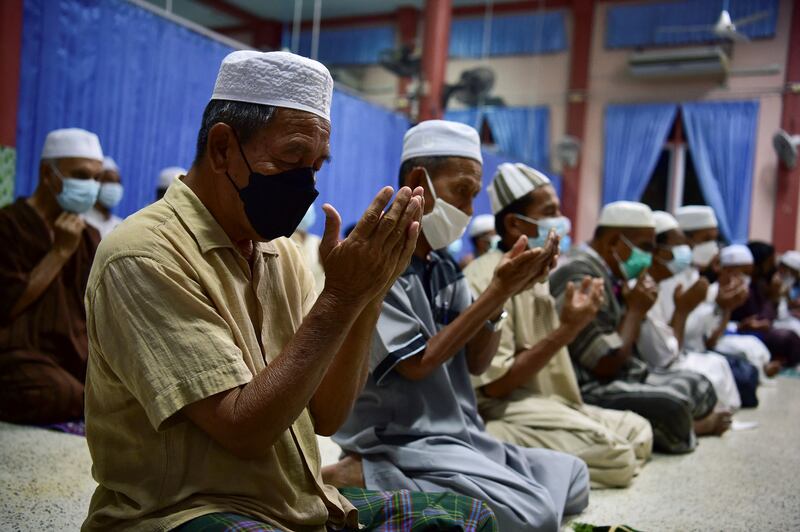A glimpse of hope has emerged for Thailand’s far south: A ceasefire has been in place since April 1 without any violent confrontation between government troops and rebel forces.
Observers said the ceasefire, announced that day at the end of a two-day, in-person meeting between the Thai negotiators and Barisan Revolusi Nasional (BRN) representatives, was a leap of faith that stayed aloft as both sides kept their promises to put a lid on the violence.
The deal was pretty straightforward – the Thai military vowed not to go after cell members, while the rebel BRN agreed not to carry out attacks during Ramadan and through Visakha Bucha Day, a Buddhist holiday observed this year on May 15.
A bigger leap of faith was the move to declare all mosques in this conflict-affected region a sanctuary where combatants could meet their family members during the last 10 days of Ramadan, which ended on May 1. That did not happen.
Artef Sohko – president of The Patani, a political action group that advocates self-determination for the people of this historically contested region – said coming into an open public space like a community mosque was too big a security risk for combatants.
Mistrust is still high, he said.
In the past, the idea of standing down didn’t appeal to the Thai Army, which was bent on using military means to take down BRN combatants. Even after the BRN announced a unilateral ceasefire in April 2020, following a call for global ceasefire from U.N. chief António Guterres at the onset of the COVID-19 pandemic, Thai security forces relentlessly crushed BRN operatives, going after cell members one by one as they lay low in remote villages.
For 24 months, Thai forces killed nearly 60 BRN operatives, according to my own tally based on media reports. Military sources told me they found it astonishing that all but one of these combatants chose to fight to the death instead of surrendering, even though their chances of making it out alive were slim to none.
"It's their way of showing their commitment to merdeka (independence)," said Asmadee Bueraheng, an executive member of The Patani, in reference to the fight-to-the-death attitude of the combatants.
The attitude caught the attention of a leading Thai security expert, associate professor Panitan Wattanayagorn, the chairman of the Prime Minister’s Security Advisory Committee, whose team of counter-violent extremism (CVE) researchers said these qualities would continue to pose tremendous challenges to Thailand’s counterinsurgency programs.
Speaking at a recent event at the Foreign Correspondents Club of Thailand, Panitan said Thai security officials can take comfort in the fact that the overall number of violent incidents has gone down steadily over the past decade.
But the level of commitment among activists and combatants should be a wakeup call about the nature of the conflict and what qualifies as counterinsurgency success, he said.
Getting BRN negotiators to agree that future talks will be in line with the “Unitary State of Thailand in accordance with the Constitution” may be an achievement, but many officials and militants don’t see it that way.

Some Thai top brass see BRN embracing the Thai Constitution as a calculating move – part of a long-term strategy to get national acceptance and international legitimacy.
According to this theory, BRN believes that it can achieve acceptance if it is no longer branded an organized crime group – and that in time, the international community will respond positively to its legitimate grievances. In other words, independence is still their ultimate aim.
Meanwhile, combatants on the ground want to know if embracing the Thai Constitution means an end to their quest for independence. If this political goal is compromised, a splinter group could be in the pipeline. Article 1 of the Thai Constitution says the country is inseparable.
Secret movement
There were plenty of local and international NGOs interested in working with both the Thais and the BRN on conflict resolution and mediation. But accessing the key decision makers – the supreme leaders of the movement – has proven virtually impossible.
BRN is a secret movement and anyone who surfaces into public space is considered “expendable,” military sources say. There is disagreement on whether that extends to the seven BRN negotiators – and whether they can actually deliver on their promises, much less control the powerful military wing of the movement.
Meanwhile, the decision by BRN negotiators to talk under the Thai Constitution has given needed ammunition for other long-standing Patani separatist movements to reassert themselves by appealing to those who disagree with the move.
To demonstrate this point, the Patani United Liberation Organization (PULO), in the early morning of April 15, carried out a double-tap strike that killed one villager and wounded three Army ordinance officials while the BRN and Thai security forces were observing the ceasefire. PULO President Kasturi Mahkota was quick to credit the movement’s military wing, which he called G-5, and stated that he is willing to return to the negotiating table, but not under the Thai Constitution.
PULO, along with other long-standing movements that came under the umbrella of the MARA Patani organization, was sidelined from the peace talks after the Thais secured a buy-in from the BRN to come to the table under the current process, which was launched in January 2020.
And while PULO is contemplating its next move, MARA Patani’s chief negotiator, Sukree Hari, also resurfaced to issue a public statement on YouTube on May 1. While his statement merely marked the end of Ramadan, it was also a reminder to the Thais that MARA Patani, too, should be invited back to the negotiation table.

For the PULO to regain its old status and strength – which peaked in the 1980s – the movement would have to complete its organizational blue print and fill up the slots, particularly the military and political wings.
On the other hand, BRN went into hibernation for about 10 years in the 1990s and caught the Thai security apparatus off guard when it resurfaced with a bang on Jan. 4, 2004, raiding an army battalion in Narathiwat and making off with more than 350 Thai military weapons.
While many Thai officials say they don’t see a PULO military wing in the making, it doesn’t mean that it’s not in the pipeline. Thai officials were caught off guard when the BRN reactivated its cells 18 years ago. No one wants to be humiliated with the same shock-and-awe scenario with the return of PULO.
Don Pathan is a Thailand-based security analyst.
